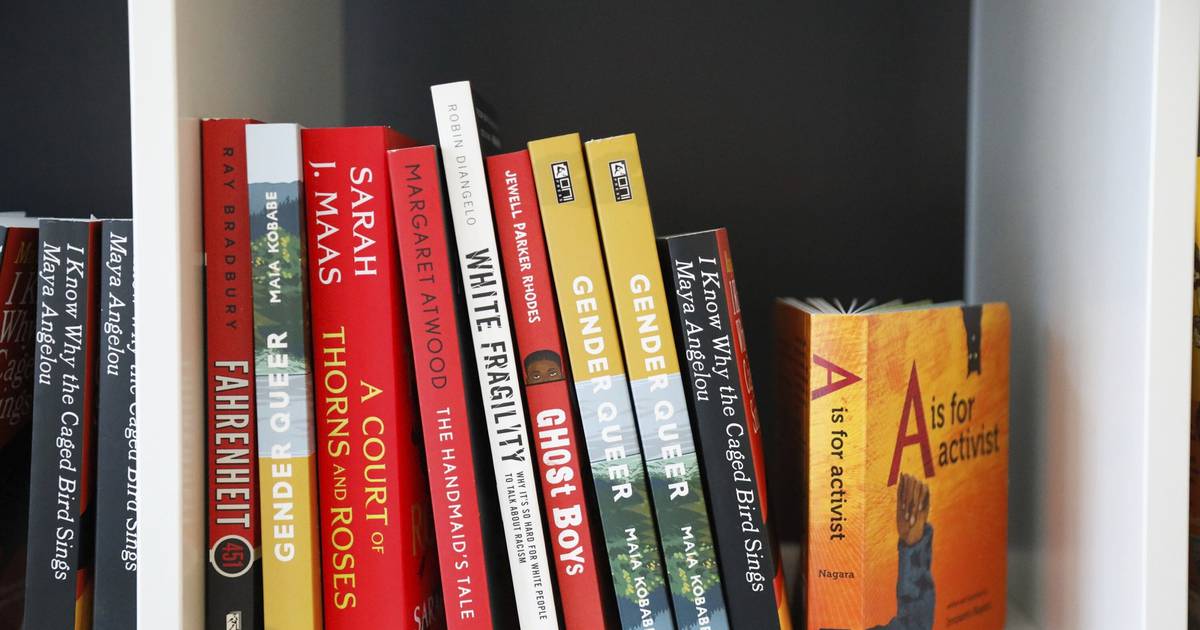
Moms For “Liberty” continues their hateful crusade to take over and destroy our public education system by demonizing books in our school libraries (”Harford parents and community leaders share concerns about book review committee at school board meeting,” Sept. 13).
While I know pornography is not in our schools, I was curious about the books that Moms for Liberty are calling out, so I bought them.
I have read three of them in the past two weeks. I think it’s important that I, a disabled queer person, speak on something very important about two of these books. I obviously don’t speak for the entire disabled or queer community.
This is about the books, “Gender Queer” and “The Teen’s Guide to Sex, Relationships, and Being a Human: Let’s Talk About It.”
Both books are written in the style of a graphic novel or comic book. This means that there are words and a significant number of drawings together on most pages.
I admit, these are difficult topics to read about. To be completely transparent, I myself once struggled with it. I leaned into my discomfort and ignorance and found the root cause of my feelings — it was fear. Once I could name it, I could tame it. Ignoring the existence of something doesn’t mean it’s not there or it won’t have an impact.
Avoidance doesn’t create safety or quell fear, and in this case, avoidance grows fear.
Until about 10 years ago, I, too, believed the notion that reading or learning about something means that I am or another person is more likely to do it. However, that is false. There is zero evidence that knowing about something automatically means you’re more likely to do it.
Have you ever noticed that anytime you withhold something, it drives the desire to have it? Don’t believe me, check what happened to album sales when albums began to have explicit lyric labels on them.
The less you know about something and the more that something is hidden from you, the more likely you are going to find out on your own and the more likely you’re going to hide that you did it.
With that said, banning books is not going to prevent kids from having access to these books. You’re making it so they are more likely to read these books.
Next, graphic novels and comic books make reading and books more accessible to disabled students.
I understand that pictures of naked bodies, sex and various other bodily functions can be difficult for some to see. However, it’s necessary for some to see those pictures because of their disabilities.
These books, with their graphic novel and comic book style, are more accessible to students and people who have dyslexia, autism, ADHD, and other reading and comprehension disabilities.
The pictures and style are not about pornographic content.
This is about showing context for those with reading disabilities, like dyslexia. It’s about presenting the content in a way that students with ADHD can stay focused. It’s about providing scripts for neurodivergent and autistic people so they can access social situations and develop relationships.
Both books are more prescriptive or instructional than a source of entertainment. I can’t see any entertainment at all in either of these books.
Every child — even the disabled, queer ones — deserves to have books that make learning and reading accessible to them.
I am giving some of the members of the Harford County Board of Education a one-time pass right now (even though it is their responsibility to understand the diverse population they serve) because I am assuming they don’t know what they don’t know. However, this is the only pass, because once you know better, you do better.
That is not to say that they have to understand — it means they will defer to the specialists who do know. It means understanding that books are written in many different ways for many diverse populations. Just because they don’t understand the need for accessibility and representation does not mean the books don’t have a purpose and don’t deserve a place in our school libraries.
Because, simply stated, if you don’t want your child to read it, it is your responsibility as a parent to communicate that to the school. Let the school librarian and educator know and I am positive they will accommodate you and your child’s needs, just as they do everyone else’s. It’s not everyone else’s responsibility to give up their right to parent and educate their children so that you don’t have to.
No one person or group of people gets to use their opinions to restrict access to books and learning for other people. Let me clearly state, the students I am speaking about are protected by the Americans with Disabilities Act, Free Appropriate Public Education and other anti-discrimination laws. These books depict people of diverse experiences including all gender identities, people of color, and those with different ethnic, cultural and religious backgrounds, sexual orientations and disabilities. Representation matters.
I reiterate that any adult that reads these books (”Gender Queer,” “Let’s Talk About It” and “All Boys Aren’t Blue”) and thinks they are pornographic are people who make me ask the question: Should they be around kids? These are not books that elicit arousal and they were not written to elicit arousal. If you are aroused by these books or feel someone might be, you might need to have a conversation with a professional about it.
READ BANNED BOOKS (and books they want to ban)!
Ruby Lane
HCPS parent and resident of North Harford

